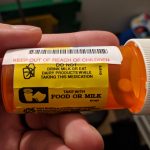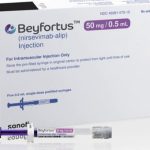Why Eligible Infants and Children Should Get The New RSV Medication – AAP

Respiratory Syncytial Virus (RSV) is a widespread viral infection that predominantly targets the respiratory system, particularly the lungs and airways. This virus is a significant contributor to respiratory illnesses, affecting individuals of all ages, but posing a more serious threat to infants, young children, and older adults. The period when RSV infections are most prevalent typically spans from the fall season through early spring.
RSV spreads with remarkable ease due to its high level of contagiousness, primarily through direct contact with respiratory secretions. It’s transmitted via activities such as coughing, sneezing, and by touching surfaces that have been contaminated by these secretions.
The symptoms of RSV infections can vary widely, ranging from mild cold-like manifestations to more severe respiratory distress. Common signs include coughing, a congested or runny nose, fever, sore throat, sneezing, and in some cases, wheezing.
While many RSV infections are relatively mild and resolve on their own, certain cases can escalate to severe respiratory complications, particularly among vulnerable groups. Premature infants, young children with conditions like congenital heart disease or chronic lung disorders, and older adults with weakened immune systems are at a higher risk of experiencing severe RSV-related complications.
In infants and young children, RSV infections can give rise to conditions such as bronchiolitis, which involves inflammation of the small airways in the lungs, and pneumonia, an infection within the lung tissues. These conditions can lead to breathing difficulties and necessitate hospitalization for proper management and respiratory support.
Preventing RSV infections involves adopting effective strategies like maintaining rigorous hand hygiene, avoiding close contact with individuals who are sick, and taking care to keep infants away from crowded places, especially during the peak RSV seasons.
The good news is that there is a new long-acting preventive monoclonal antibody for the condition. Here are some major facts and The American Academy of Pediatrics (AAP) recommendations on the importance of the new medication:
1. AAP Recommendation: The American Academy of Pediatrics (AAP) is strongly advocating for all infants to receive the new long-acting preventive monoclonal antibody for RSV, called nirsevimab.
2. Equitable Access: The AAP emphasizes the importance of ensuring equitable access to nirsevimab, to make sure that all infants, regardless of their community or socioeconomic status, can benefit from this medication.
3. Seriousness of RSV: RSV is a common, contagious, and sometimes deadly virus that can have severe consequences, especially for infants and young children.
4. Boosting Immune System: Nirsevimab is a monoclonal antibody that works by boosting the immune system’s ability to fight off RSV infections.
5. Limited Availability: While nirsevimab may not be immediately available in all clinical settings, the AAP recommends using another monoclonal antibody product called palivizumab during the upcoming RSV season for high-risk children.
6. Protecting Infants: AAP President Dr. Sandy Chung emphasizes the need to protect all infants from the dangers of RSV and urges federal officials to ensure access and affordability of nirsevimab.
7. FDA Approval: The U.S. Food and Drug Administration (FDA) has approved nirsevimab under the brand name Beyfortus.
8. CDC Recommendation: The U.S. Centers for Disease Control and Prevention (CDC) also recommends nirsevimab for eligible infants.
9. Effectiveness: Clinical trials have shown that nirsevimab can reduce the risk of RSV requiring medical care by 75%, highlighting its potential to significantly lower the impact of RSV infections.
10. Targeted Age Groups: The AAP recommends a single dose of nirsevimab for all infants under 8 months born during or entering their first RSV season. Additionally, infants and children aged 8 through 19 months who are at increased risk of severe RSV disease should receive a single dose.
It’s important to note that the recommendations provided by the AAP and other health organizations are crucial in promoting the health and well-being of infants and young children. These guidelines can evolve over time as new data and research become available, so staying informed and consulting with healthcare professionals is essential for making informed decisions regarding infant health.





